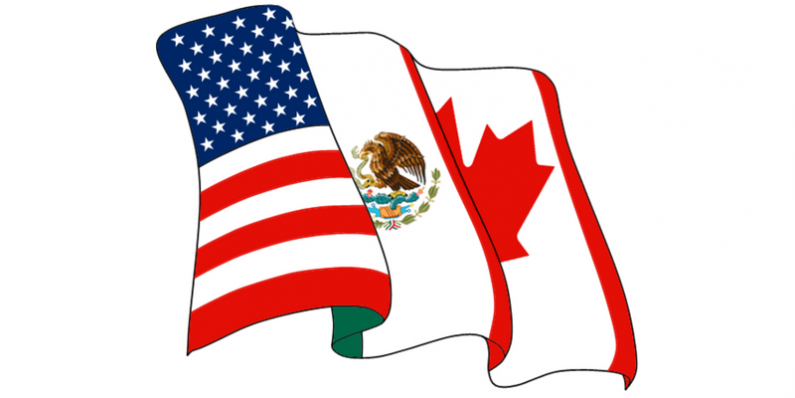If U.S. President Donald Trump follows through on his promise to end NAFTA, many important immigration provisions would disappear as well. 14 million American jobs depend on trade with Mexico and Canada, according to the U.S. Chamber of Commerce.
Because of NAFTA, Canadian professionals can go to the United States and work in TN status. Investors from Canada can use E visas. The North American Free Trade Agreement (NAFTA) has created benefits for U.S. and Mexican citizens interested in entering Canada for business. According to IRCC, if someone is entering Canada to work they must qualify under NAFTA, other FTAs or the General Agreement on Trade in Services (GATS) if they don’t have a LMIA. Since 2007, 20,406 Canadians have received E-2 visas allowing them to invest in the U.S., creating thousands of American jobs in the process.
According to an article by Stuart Anderson, executive director of the National Foundation for American Policy:
“If NAFTA were to end, both the TN and E visas would become unavailable,” writes Kathleen Walker, an attorney with Dickinson Wright and author of a new National Foundation for American Policy report. “That means the jobs, health and consumer benefits Americans now enjoy connected with these visas also would end."
“The TN visas allow U.S., Canadian and Mexican technology (and other) companies to benefit under NAFTA by the ability to transfer employees back and forth across the border,” notes Walker. “This improves productivity and encourages increased hiring of workers in America. By facilitating investment, the E visa helps create jobs in America. Both Canada and Mexico are major sources of foreign direct investment in the U.S.”
NAFTA provides career opportunities for Americans to work in Canada.
“Canadian universities and research facilities hire a number of very distinguished American academics,” Peter Rekai, an attorney with Rekai LLP in Toronto, an interview with Stuart Anderson. “The Canadian health field also includes top flight U.S. medical experts, including surgeons and heads of hospitals, while U.S. executives and managers lead many high-profile Canadian businesses. NAFTA has allowed considerable talent to flow freely across a friendly border in both directions.”
There are specific groups who travel into Canada under NAFTA, according to IRCC:
- business visitors
- professionals
- intra-company transfers
- traders and investors
The U.S. is required to give six months notice before pulling out of NAFTA.
U.S. Immigration – Cross-Border Applications
- How to get a Professional Work Permit for Canadian Citizens – TN Visa
-
How to get a Work Permit for Treaty Traders and Investors - E-1 and E-2 Visas
- How to get an Intracompany Transfer Work Permits - L-1A Visa
- How to Get a Specialty Knowledge Worker Permit - L-1B Visa
Recruiting and relocating international workers to the U.S. takes time and planning. Ackah Business Immigration Law will work closely with your business and human resources team to offer expert guidance throughout the entire process.








